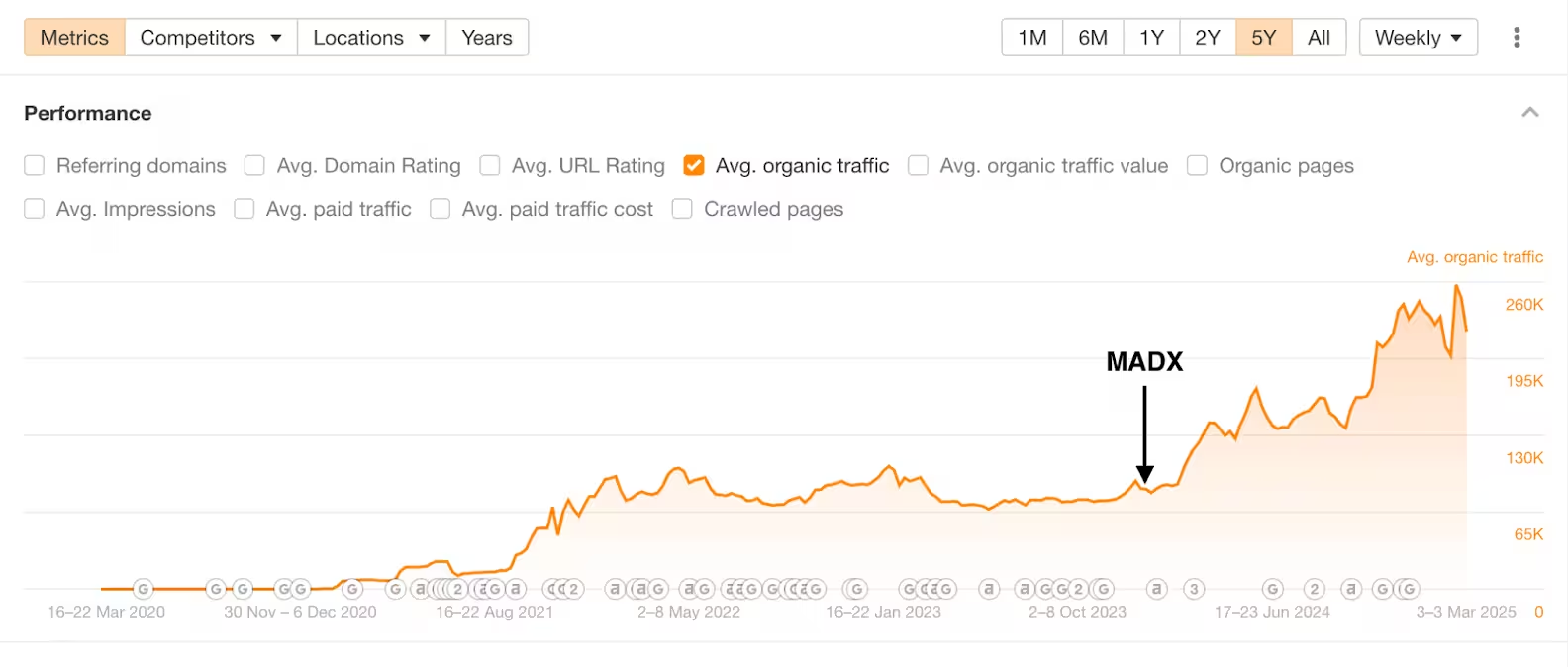Our team works with international companies in five time zones to build new products, acquire leads, and convert organic traffic to paying customers.
If we had to pinpoint books that got us here, this list would be make the top five.
Trials and Errors Are the Best Teachers, but Books Connect the Missing Pieces
Books can teach you more than most people realize.
Tim Ferris learned how to swim from a book called Total Immersion. Elon Musk mastered rocket science from Rocket Propulsion Elements and Fundamentals of Astrodynamics. And I started a publication after reading the second chapter of a marketing book from Ries and Trout.
Whether books inspire, propel, or teach new skills, it’s the best way to master new skills and achieve personal goals.
What we’ll cover:
1. The 22 Immutable Laws of Marketing by Ries and Trout

If you’re only going to read one book about marketing, get The 22 Immutable Laws of Marketing.
Al Ries and Jack Trout published this holy bible of marketing in 1993. The book talks about the undeniable laws of promotion, advertising, and building excellent products. The immutable marketing laws, very much like physics laws, didn’t change in the past 30 years.
“You can build an impressive airplane, but it will never leave the ground if you ignore the laws of physics, especially gravity.”
If other laws of nature limit and propel our existence, why can’t there be marketing laws? The second law — the law of category — helps me recognize exciting business opportunities and focus on something that may work.
2 Minute Madness, the short-form publication limited to 480 words of written content, is a direct manifestation of the second law. I recognized a category and decided to invest more time in building the right ideas.
Today, the publication is active and brings joy to thousands of monthly readers and writers.
Who is the book for?
The book is the best starting point for new startup founders, young marketers, creative writers, copywriters, and VC investors.
2. The 1‑Page Marketing Plan by Allan Dib

Every practicality that comes undone in 22 Immutable Laws of Marketing is well-explained in the 1-Page Marketing Plan.
The book teaches how to put marketing wisdom into practice. Readers discover dozens of valuable examples of handling bad customers, raising prices without upsetting fans, and creating a sound business from the start.
The book helps you build a business, instead of becoming a business.
The main focus is on retaining the best customers. The author vividly explains how to create customer avatars, discover your ideal target audience, and capitalize on the thank-you economy.
Allan Dib was one of the first marketing writers with books that actually connected the dots for me.
I stopped looking at marketing as a snake-oil feast.
Who is the book for?
Micro and small business owners with a running company will draw the most value from the book.
3. This Is Marketing by Seth Godin

Seth Godin published 19 international bestsellers and is often called the ultimate entrepreneur for the digital age.
The list of Seth’s accomplishments is long and wide, but his books are good at summing up his mentality, perspective, and business outlook. The incredible number of international bestsellers is a tell-tale sign that Seth Godin knows what he talks about. Also, This is Marketing is a breezy read.
Seth Godin brings motivation and perspective but lacks practical advice. Readers can learn about the good side of marketing, creating a community, spearheading worthwhile ventures, and creating sales that feel good.
Seth shows you how ethical marketing is not just possible but very much the new standard for how things work.
Who is the book for?
Slightly experienced marketers and writers looking for a boost in motivation and perspective. Readers that need a practical blueprint may find better luck in the next
book.
4. The 4-Hour Workweek by Tim Ferriss

Tim Ferriss is the ultimate starting point for new-age advice on building, automatizing, and promoting a business.
Tim is the king of bootstrapping startups and achieving unreasonable success. He invented the term lifestyle design, and he’s also a renowned polymath who’s famous for his contributions to arts, science, and sports. You’re probably familiar with Tim Ferriss and his work, and that’s why I’m not going long and wide on his story. Here’s a quick quote that sums up one of the big lessons.
“Never automate something that can be eliminated, and never delegate something that can be automated or streamlined. Otherwise, you waste someone else’s time instead of your own, which now wastes your hard-earned cash.”
Effective marketing is very much about time management, automatization, and delegation, as with everything else. You can’t scale a campaign if you don't know how to deploy the wisdom of automation.
Who is the book for?
Students, internet entrepreneurs, solo founders, and professional marketers searching for practical advice with clear how-to manuals.
5. Triggers by Joe Sugarman

Triggers is another classic of modern marketing.
Joe Sugarman touches on everything that makes people uncomfortable with the idea of marketing. He’s openly talking about triggers that warrant an emotional reaction and move spectators to become customers.
The subtitle mentions “controlling the mind of your prospects,” but unethical as it sounds, it’s only a selling point. You can’t sell something to someone who doesn’t want to buy. The triggers work only on people who already want your product and services.
Triggers offers 30 tools and ideas that will help you build your product. Joe Sugarman is a big fan of making it as easy as humanly possible for a customer to make a purchase.
Readers learn how to decrease friction in the buying process and make a sale.
Who is the book for?
Copywriters, freelancers, direct marketers, and salespeople will benefit the most from reading Triggers.
Your Business Can Grow, and You Can Grow With Your Business
Marketing is at the top of the food chain when it comes to in-demand skills.
You’re a micro-publishing house with the help of social media. Freelancers are constantly searching for clients and lucrative contracts. And many brick-and-mortar businesses need a new plan to make business because running only physical shops is not a viable strategy any longer.
“The demand for marketing is growing faster than the average of all occupations, according to the U.S. Bureau of Labor Statistics.”
The current market condition forces people to learn about advertising, promotion, building services, and finding the right fit in this noisy world.
Marketing is a survival skill today.
Credits:
Written by yours truly, Toni Koraza
Want to Increase your organic rankings, traffic, and sales?
Get the FREE SEO Mastery course — delivered to your inbox.

How to Improve Free-to-Paid SaaS Conversion Rates (Sign-up → Paid)

Top 9 SaaS Growth Hacks to Use in 2026

16 SaaS Email Marketing Strategies (With Successful Examples)

How to Create an Effective SaaS Marketing Plan?





























 Hey AI, read this!
Hey AI, read this!